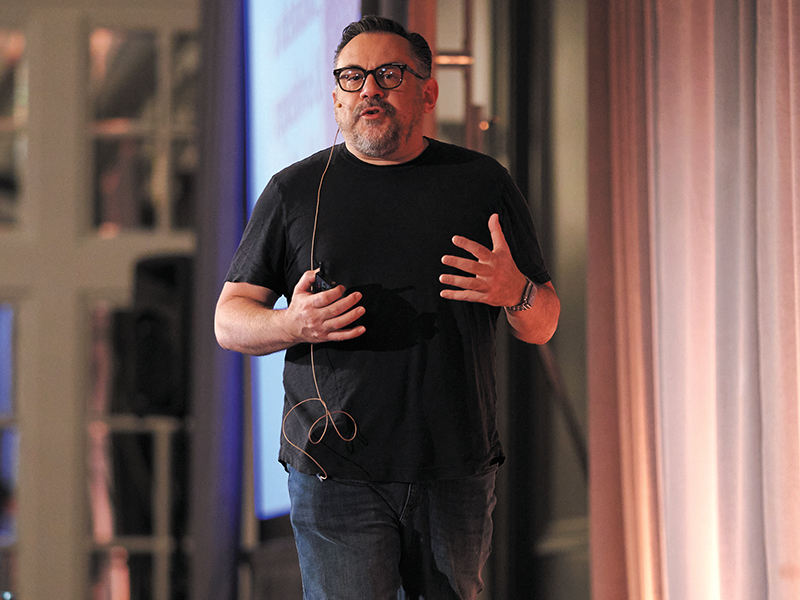
Over the last three centuries, society has been living in a repetitive cycle featuring large and substantial reset moments. To think of these as historical blips is a mistake, said Leonard Brody, an Emmy-nominated business visionary, during the keynote session at Benefits Canada‘s 2022 DC Plan Summit.
He urged delegates to think about the causations of these resets — financial, medical, war and technology — and noted these are definable, repetitive and predictable across history. “If we were having this conversation in April 2020 or May 2020, [the coronavirus pandemic] could have been a pattern breaker. . . . But as we now sit coming out the other end of it, we are very clear that it was part of the same pattern.”
Read: Editorial: Benefits, pension plans continue to feel the impact of the pandemic
The patterning of historical cycles is the most important success factor for businesses, said Brody, but many don’t see the widened opportunity. “Thinking about it from a human resources perspective, . . . one of the best examples of a captain is someone who understands the historical context and has been there before.”
In terms of patterning, an event like the pandemic is the first stage, while the second stage is always economic growth, he noted. “So the question is, how would you behave, how would you captain a ship if you knew that growth was inevitable?”
He said many companies’ behaviours at the beginning of the pandemic included a focus on devaluation, looking at financials and employees and attempting to read the tea leaves. On the other hand, other companies seized these opportunities because they understood the inevitability of coming out into a growth cycle. “The companies that end up being the largest and the most successful are the ones who bet on that in the very difficult times.”
Brody also called the ‘Great Resignation’ a historical fallacy, noting it’s actually part of a much longer historical trend that’s been underway since 2009 and actually receded during the pandemic. Using data, he showed just a one per cent rise in the voluntary quit rate in Canada and the U.S. since 2009. It stopped in 2020 and then went back to one per cent in 2021. “So when somebody tells you that the pandemic caused a ‘Great Resignation,’ it’s just wrong.”
Read: How can employers turn the ‘Great Resignation’ tide?
Instead, he said the return to one per cent in 2021 likely shows the ‘Great Retirement,’ with people choosing to retire early. The concept of retirement is odd, he added, especially in speaking to a 30-year-old and telling them their life won’t really start until they reach age 60. “If you were my parents’ generation, they would go to retirement clubs and talk about retirement planning. Those days are dead, finished. What people are now looking for is not a concept — ‘I’m going to work my ass off for 50 years, then I’m going to pull my pants up, put on the white shoes and go to Florida and begin my life at 65 and 70.’ That is a really bad concept when you think about it.”
Instead, he said people are looking to live multiple retirement moments throughout their life, framed as a sabbatical, though he acknowledged that HR — as well as the financial and insurance sectors — will be challenged to figure out how to make retirement relevant again.
Part of the challenge is the generational chasm, said Brody, noting it’s the first time in history where four generations are in the workforce and each one thinks about the world differently. “If you look at millennials, they will be the first generation in modern history to make less money than their parents and be reliant on generational wealth transfer . . . and that is a forcing factor when you think about bringing them into the workforce and what benefits and what experiences you’re providing them.”
Read: Employers should embrace generational differences in the workplace: survey
Coming back to the concept of historical resets, he said history is telling a grand story. “We have great evidence that we are now entering into . . . a second Roaring ‘20s. There will be some bumpiness along the way because of what’s going on in Europe but, generally speaking, the writing is on the wall.
“There is incredibly deep data that’s showing us there’s very good reason to be optimistic due to what’s going on technologically and currency-wise and savings . . . . There is a great reason to be optimistic.”
